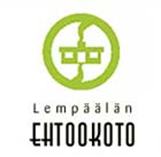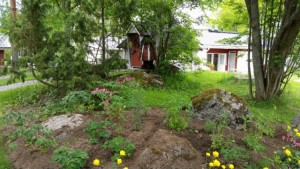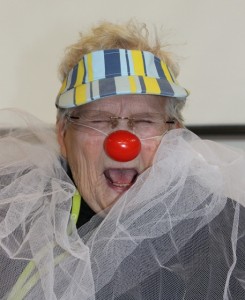 Ehtookoto provides housing and support services to older adults and adults suffering from mental health problems in the municipality of Lempäälä, Finland. It was founded in 1965 and embodies the principles of empowerment and client-centered services that we often talk about, but sometimes struggle to put into practice. It is also situated in a lovely, wooded setting with gardens, chickens, and a fire pit for summer (or winter) sausage grilling.
Ehtookoto provides housing and support services to older adults and adults suffering from mental health problems in the municipality of Lempäälä, Finland. It was founded in 1965 and embodies the principles of empowerment and client-centered services that we often talk about, but sometimes struggle to put into practice. It is also situated in a lovely, wooded setting with gardens, chickens, and a fire pit for summer (or winter) sausage grilling.
Ehtookoto is a nonprofit association that receives most of its funding from the municipality which purchases its services. Residents pay rent and a service fee that is based on the amount of care they need. Depending on their income, the municipality may pay for some of all of this care. In that way, Ehtookoto is similar to other senior housing agencies I learned about during my time in Finland. I think, however, the level of client participation sets it apart.
- There is a resident and client council that meets once a month.
- Residents are involved in the recruitment and interviewing of new employees. Even when they were hiring for the dementia care unit, a resident of that unit was involved and asked good questions. According to the executive director, you can learn a lot about a potential employee by how they respond to the resident member of the interview team. A word to the wise future applicant: if you don’t speak to or acknowledge the resident interviewer in the same way you do with everyone else, you won’t be working at Ehtookoto.
- Residents are involved in various organizational development activities such as identifying and defining the values of the organization and the elements of a good home visit.
- Residents plan and organize a variety of recreational activities
- Residents and their relatives regularly provide feedback
The director’s office door is always open and residents are not shy about voicing their concerns and sharing their ideas. At least, not eventually. Older adults are increasingly moving to places like Ehtookoto with more physical, mental, and cognitive problems than in previous years. This is because Finland’s 2013 Elder Care Law dictates that older adults should be cared for at home for as long as possible and institutional care as we have known it is being phased out. Older adults are moving to Ehtookoto, therefore, from elderly care institutions or psychiatric hospitals that are being shut down or after years of having received home care. It can be a difficult transition from a setting where you are a passive care recipient to one where you have choices and can decide how you want to live your life, with the support you need to make that happen.
Ehtookoto provides more services on the campus and in the community than I have space to describe here. The atmosphere and smiles among staff and residents alike attest to the culture of the place.
And, they have a resident circus.



Very nice. Sounds unreal.